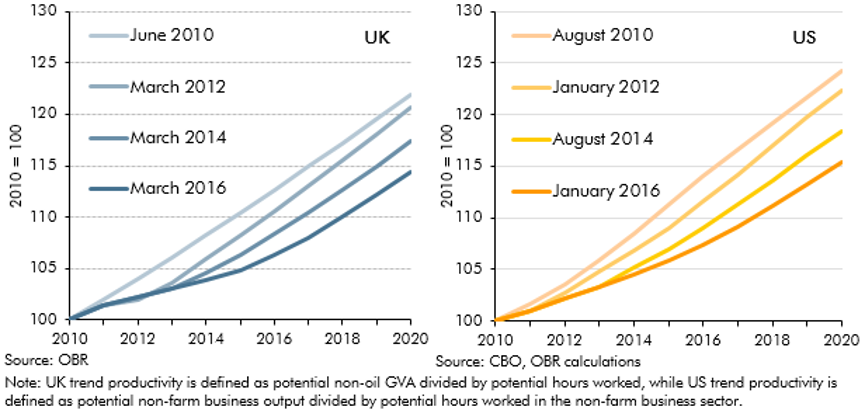Productivity puzzle

Productivity Puzzle
The politics of Britain's productivity puzzle
Politicians sometimes foreground the supposed laziness of British workers. However, these narratives only serve to let governments, institutions and the state off the hook. Capitalism, after all, is shaped by institutional context and public policy, including regional (under)investment, skills and education policies, and is embedded in distinct social contexts, sustained by specific institutional infrastructures. Britain’s productivity puzzle reflects not individual failings of often-disadvantaged workers, but structurally embedded dysfunctionalities in Britain’s model of capitalism and the politics that upholds it.
No single thesis fully captures the drivers of Britain’s disappointing productivity. Existing explanations are too narrow and miss the multifaceted politics behind recent trends. Taken together, however, several factors can help us to better understand the so-called productivity puzzle.
Overlapping problems of British productivity
1. The dominance of finance
With its roots in imperial economic patterns, London’s longstanding status as a leading financial centre has provided significant fuel for Britain’s regional productivity differences. British industry has not benefitted proportionally from the City’s status, and limited state intervention through industrial and regional development policies has meant no substantive regeneration in former industrial heartlands.
High-end financial and business services account for the majority of British exports, with such highly productive ‘frontier firms’ disproportionately concentrated in the economically prosperous South. Meanwhile, a lower-skilled, domestically-oriented service sector economy characterises the rest of Britain, which lags behind.
2. Labour market fragilities and imbalances
Finance’s dominance in British capitalism has distorting effects on the labour market. The financial sector wage premium is disproportionately high in Britain, at 45%. University graduates are the typical beneficiaries of this well-paid work, mostly located in London and South East England. They are also much more likely to receive bonus payments than those working in the wider economy, exacerbating trends towards acute inequality.
Decades of underperforming education and training infrastructures, alongside flexible labour market policies have created the low skill, low wage, precarious employment rut the UK labour market finds itself in. The majority of the British labour market comprises low productivity service sector work, characterised by precarity, limited training opportunities and low remuneration. Government ‘active’ labour market policies are strongly geared towards making workers available for any (low-quality) job, rather than investing in human capital or ‘upskilling’. The British economy prioritises a shareholder value logic favouring ever-freer capital and labour markets, and minimal hiring and firing restrictions. These factors arguably restrict the path to higher productivity growth, helping to explain the predominance of low value-added service sector jobs at the expense of higher skills and higher value-added production.
3. Insufficient public investment
The common thread underpinning each of the previous productivity problems is the long-term lack of well-targeted public investment. Successive governments have proved unwilling to pursue more interventionist or directive ‘upskilling’ measures to assist the economy’s transition towards high-end exports. Despite increased investment in education from the 1990s, ongoing labour market liberalisation designed to facilitate the knowledge economy only exacerbated the divergence between high- and low productivity firms.
The British state’s built-in antipathy to public investment and lack of strategic support for manufacturing industries has further productivity implications. British capital is historically short-termist rather than focused on long-term productive investment. For over two decades from 1997, Britain has had the lowest levels of Gross Fixed Capital Formation – a measure of investment in non-financial public and private sector assets – of any OECD nation. R&D investment in Britain is also much lower that European and OECD averages. These trends mean that Britain has long lacked the kind of expenditure that is essential for developing high-end production.

